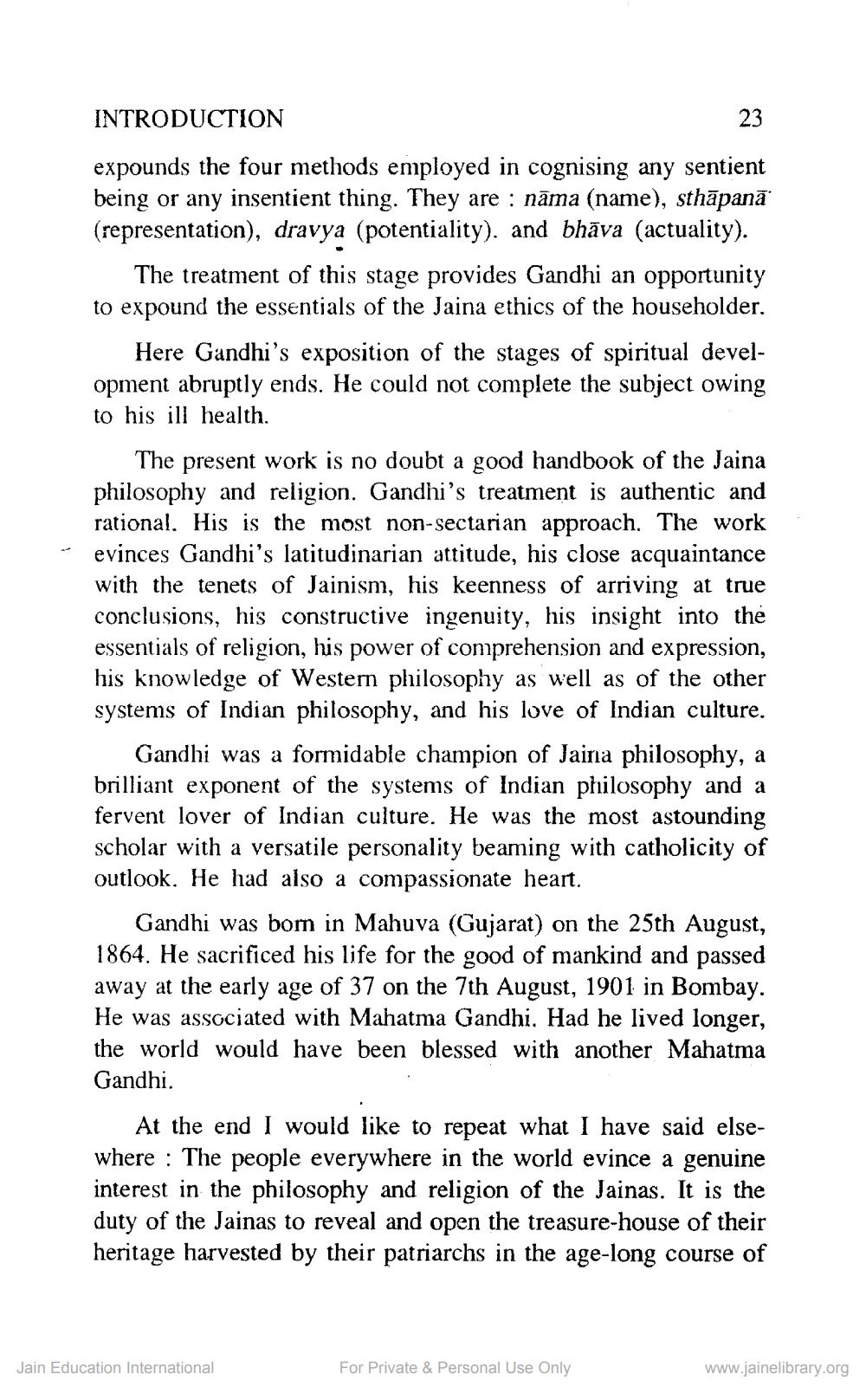________________
INTRODUCTION
23
expounds the four methods employed in cognising any sentient being or any insentient thing. They are : nāma (name), sthāpanā (representation), dravya (potentiality). and bhāva (actuality).
The treatment of this stage provides Gandhi an opportunity to expound the essentials of the Jaina ethics of the householder.
Here Gandhi's exposition of the stages of spiritual development abruptly ends. He could not complete the subject owing to his ill health.
The present work is no doubt a good handbook of the Jaina philosophy and religion. Gandhi's treatment is authentic and rational. His is the most non-sectarian approach. The work evinces Gandhi's latitudinarian attitude, his close acquaintance with the tenets of Jainism, his keenness of arriving at true conclusions, his constructive ingenuity, his insight into the essentials of religion, his power of comprehension and expression, his knowledge of Westem philosophy as well as of the other systems of Indian philosophy, and his love of Indian culture.
Gandhi was a formidable champion of Jaina philosophy, a brilliant exponent of the systems of Indian pluilosophy and a fervent lover of Indian culture. He was the most astounding scholar with a versatile personality beaming with catholicity of outlook. He had also a compassionate heart.
Gandhi was born in Mahuva (Gujarat) on the 25th August, 1864. He sacrificed his life for the good of mankind and passed away at the early age of 37 on the 7th August, 1901 in Bombay. He was associated with Mahatma Gandhi. Had he lived longer, the world would have been blessed with another Mahatma Gandhi.
At the end I would like to repeat what I have said elsewhere : The people everywhere in the world evince a genuine interest in the philosophy and religion of the Jainas. It is the duty of the Jainas to reveal and open the treasure-house of their heritage harvested by their patriarchs in the age-long course of
Jain Education International
For Private & Personal Use Only
www.jainelibrary.org




